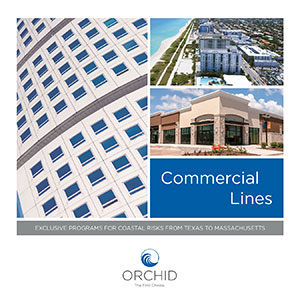Liability insurance offers protection for the insured party. This coverage protects against claims, which could be the result of injuries and damages to individuals or property. It’s designed to protect the insured party’s assets from being taken from them due to a judgement.
What happens if a judgement is rendered against a person not covered by liability insurance? If that occurs, it could result in the person liquidating their assets to come up with the money to pay for the judgement. Situations like this are where excess liability insurance and umbrella insurance can be priceless.
What is Excess Liability Insurance?
An excess insurance policy may also be referred to as excess liability insurance. It is a form of insurance coverage that offers limits which provide more protection than the underlying liability policy that a person already has. It helps by providing higher limits on top of the original liability policy that the insured person has.
The primary purpose of taking out excess liability insurance is to help close the coverage gaps and provide an extra layer of protection if your current insurance policy is exhausted of all resources following a claim. In other words, an excess liability insurance policy is like taking out an insurance plan for your insurance. It helps to guarantee that everything is covered even if the insured’s primary insurance policy has reached its limits.
Keep in mind: you can only use an excess liability coverage policy with one underlying policy. So, if the insured has multiple insurance policies through one company, and has excess liability on their car insurance, it is not going to carry over for their homeowner’s insurance. They will need to take out an additional excess liability policy to supplement that coverage.
Who Should Have Excess Liability Insurance?
 Excess liability insurance is an additional form of coverage, and it is not something that every person needs. If you don’t have many assets or do not have a lot of property to protect, you may not need to take out this additional coverage.
Excess liability insurance is an additional form of coverage, and it is not something that every person needs. If you don’t have many assets or do not have a lot of property to protect, you may not need to take out this additional coverage.
On the other hand, if you have a lot to lose and may potentially face a lawsuit, taking out an excess insurance policy can be beneficial.
Individuals who work in professions where they face potential litigations, or those who live in homes with a high risk of damage, could benefit from having an excess liability policy.
What is an Umbrella Insurance Policy?
Umbrella insurance is a type of policy that provides additional liability coverage over and above your current insurance policy. It is an option that follows an auto insurance policy, but is fully designed to add other policies to it, such as a homeowner, watercraft, ATV, an RV policy and many more. This insurance protects the insured from a large liability claim or judgement that is too much for your liability policy to handle. It takes over when the insured has reached their underlying liability limits.
In most cases, an umbrella insurance policy will cover
- Bodily injury claims
- Personal injury claims
- Property damage
- Landlord liability
Umbrella insurance will typically not take care of
- Personal belongings
- Business losses
- Intentional or criminal acts
- Written or oral contracts
Who Should Have an Umbrella Insurance Policy?
 An Umbrella insurance policy can provide coverage beyond the limits of your auto and homeowners insurance policies. Because the point of an umbrella insurance policy is to safeguard your assets if you’re ever sued, it typically makes better sense to get umbrella coverage if you have assets to protect.
An Umbrella insurance policy can provide coverage beyond the limits of your auto and homeowners insurance policies. Because the point of an umbrella insurance policy is to safeguard your assets if you’re ever sued, it typically makes better sense to get umbrella coverage if you have assets to protect.
Some insurance providers will recommend you take out an umbrella policy if the policyholder’s net worth is over $1 million. This is also the minimum liability amount on one of these policies.
Umbrella insurance is considered a good option for anyone with assets that are worth more than what they have in liability coverage for their home or auto insurance policies.
The Key Differences Between Excess and Umbrella Insurance
Sometimes umbrella insurance is referred to as excess liability protection by insurance professionals, but it’s important to know that these two types of coverage are not the same.
Both umbrella and excess insurance policies are designed to offer coverage above the limits of any underlying coverage. However, the main difference between the two is that umbrella insurance can broaden your coverage, or in other words, extend your coverage territory. An excess insurance policy offers coverage that is above the limits of regular liability insurance, but it does not broaden your coverage as an umbrella insurance policy does.
Not all insurance companies will offer excess liability coverage. That may be because the policy only provides coverage for the same risks that your underlying policy does and because it comes with the same exclusions.

An umbrella insurance policy will provide a broader range of liability coverage options that are not covered by your underlying policy. For example, if you have a homeowners liability insurance plan and you take out excess coverage, you will have additional protection if you’re found responsible for a person falling and becoming injured on your property.
Excess liability coverage will not provide you additional coverage for other claims such as a libel or slander settlement if your homeowner’s insurance policy doesn’t already cover those acts.
An umbrella insurance policy would provide coverage for a broader range of incidents. It would be more likely to help pay for a libel or slander judgement against you that is in connection with the initial bodily injury claim.
It is always important to read over your policies with your agent and make sure you know what is covered and what isn’t. The lines between excess liability insurance and umbrella coverage can become blurred at times, even for those involved in the industry. Therefore, it’s a good idea to learn the differences between these two types of coverage before you take out additional insurance policies so that you know how much coverage you have and if you should add more.
To learn more about how excess liability insurance and umbrella coverage are different, contact Orchid Insurance today at 1-866-370-6505. Our licensed professionals will be happy to answer any questions you have.




